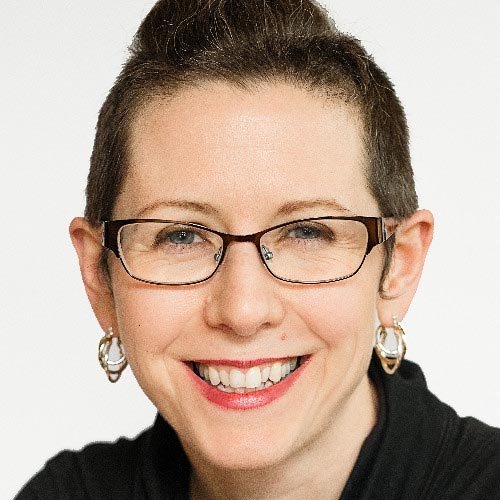Western's Caroline Hardin secures new NSF grant to build equity in K-12 computer science education
WWU Assistant Professor of Computer Science Caroline Hardin has been awarded a $230,000 grant from the National Science Foundation to help lead an effort for diversifying computer science teachers across Pacific Northwest schools.
The grant aims to understand the pathways and barriers to becoming a K-12 computer science teacher with the goal to design resources to train and retain educators. Hardin will collaborate with researchers from the University of Washington, Central Washington University, Whitworth University and Washington State University on the project titled “An Equitable, Justice-Focused Ecosystem for Pacific Northwest Secondary CS Teaching.”
The grant spans four years, each year with a unique central focus. The first year will focus on scope, and determining what the project is, and what it could be. Then, the researchers will build, deploy and assess the program during the second year. Years three and four will be focused on growth and sustainability, respectively.
“The best way to make high quality computer science teacher training programs is to study the best practices across existing programs and learn about what is keeping most of these programs stunted with very few graduates,” Hardin said.
Computers are constantly changing our world and I believe all children should get a chance to participate in their design, but that won’t happen without universal computer science education.
Caroline Hardin
The teacher shortage is real
There is a shortage of teachers in Washington in general, but it’s particularly noticeable with computer science education, Hardin says. Every school in Washington is required to offer computer science programs, but there are not enough qualified computer science teachers to meet this need. Many teachers who are teaching the subject are teaching out of their field, with temporary certificates or are new teachers with less than five years of experience.
“Computers are constantly changing our world and I believe all children should get a chance to participate in their design, but that won’t happen without universal computer science education,” Hardin said. “If we want our children to get high quality education in computer literacy, digital citizenship and foundational computer science skills, then we need teachers who have been well trained in computer science skills.”
One reason for a computer science teacher shortage is the lack of proper certification opportunities. The programs that do exist typically only require one or two credits of computer science courses to be certified, a low standard by education certificate standards, Hardin said.
“You would not take two math classes and then go and teach math,” she said.
A new focus for Washington educators
Computer science education is a new endorsement area. It was adopted by the Washington State Professional Educator Standards Board in 2021, the first new endorsement in almost a decade. The last endorsement to be adopted prior to computer science education was an endorsement for teaching the visually impaired, which was adopted in 2012. Western is one of the first programs in the country to offer an education degree in computer science, with the program’s first cohort graduating in 2025.
The team hopes to create new pathways for these teachers to enter the classroom, especially for those who share the identities, values and lived experiences of the students they teach. There is a particular need for women, Black, Hispanic, Indigenous, and/or disabled teachers because teachers who share marginalized identities with students will encourage those students to enroll in computer science courses, the research team said.
WWU graduate student Noah Douglas works with Hardin on the grant’s research and became interested in how computer science was taught in K-12 after working as a teaching assistant with students entering college computer science courses for the first time.
Douglas said while there have been efforts to create guidelines for computer science teacher programs, the guidelines are not unified.
“Different regions create their programs with varying philosophies, and little research has been done to compare these philosophies,” Douglas said. “We hope to, at least in part, develop a broader view of these programs so colleges across the country can develop effective computer science teachers.”
Personally, I want more effective computer science teachers because I believe computer science is foundational.
WWU graduate student and researcher Noah Douglas
He, like Hardin, believes computer science education is not only a benefit, but a necessity.
“Personally, I want more effective computer science teachers because I believe computer science is foundational,” he said. “Like science, math, literature and other core curriculum, the basics of computer science contain knowledge that is useful even outside of the discipline.”
Washington has a long history of paving the way for computer science, and it makes sense that it would lead the way in computer science education as well, Hardin said. She hopes this research will not only improve K-12 instruction, but it will also encourage more students to come to Western because they are excited about computer science education.
Those interested in learning more about the project can visit the grant’s homepage at https://www.csforallwa.org, and visit https://cs.wwu.edu/computer-science-bae-major-information to learn more about Western’s computer science education program.
